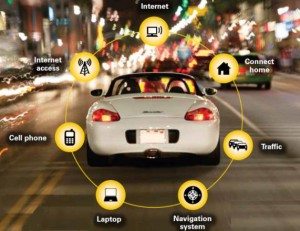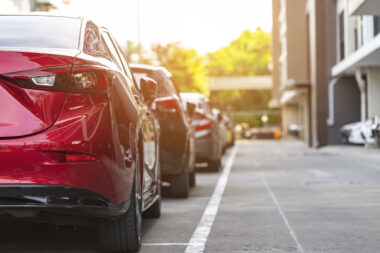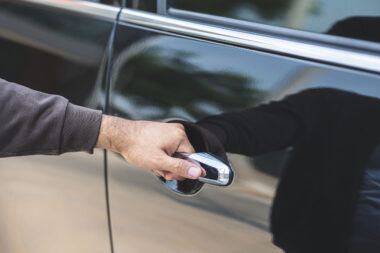
Would you believe it? It’s been 130 years since Carl Benz filed a patent for his ‘Motorwagen No.1’, revolutionizing transport forever. And the innovation hasn’t stopped…
If you followed our coverage of CES 2016, you’ll know that the connected car was a key theme. Ford announced plans for its vehicles to connect with the smart home, while BMW is aiming to provide customers with an IFTTT service, allowing the driver to control their central heating from their car seat!
According to research from Juniper Research, 20% of passenger vehicles on the road in 2019 will be connected. For die-hard drivers who become part of this 20%, this will mean some serious changes. And despite the obvious benefits, not all of them will be welcomed by driving fanatics. Here are five reasons they might dread the arrival of the connected car:
- You can’t speed
Certain connected cars can now recognize road signs, and automatically slow to the appropriate speed limit. Ford’s new S-Max people carrier comes with an intelligent speed limiter that uses a camera mounted on the windscreen to scan traffic signs and adjust the throttle, meaning you don’t have total control over how fast you drive. This is a nightmare for those wannabe F1 drivers out there, but obviously great for safety. There are almost 1.3 million fatal casualties on the road each year, with corresponding health costs reaching $518 billion globally. Not only this, but this nudge to slow down may just save you from that speeding ticket. Your m-wallet may thank your car personally!
- Your insurance premiums could increase
Through a little black box beneath the dashboard, insurers can track driving speed, and even how aggressively we accelerate. It has been reported that insurance companies will use this data to drive up premiums. So if you fancy driving fast, you may face a hike in your insurance. However, if you are a sensible driver, who always sticks to the speed limits, then you may be pleasantly surprised with your next insurance bill. As connected cars are expected to lower the number of accidents, you should be far less likely to make a claim. And as claims drive up premiums, your connected car might actually save you money.
Thought you could escape the black box? Not quite. It is also suggested that monitoring is coming into effect for all drivers, with new cars being fitted with telematics, and some with older cars being told to fit them. The problem with fitting an older car with a tracking device, like an ODB-II dongle, which attaches to the diagnostic port, is that they could be hackable!
Researchers from the University of California sent commands to the car’s internal network via SMS to the dongle. This let them take over the Corvette’s windshield wipers and even disable the brakes! Hopefully, motor manufacturers will think twice before attaching the latest tracking software to their cars without ensuring they have implemented the latest security.
- People can track where you’ve been
A new app called Truvolo takes data from the diagnostic port located in every car. The sensor can record speed, RPM, and the route a car has taken. This information is then transmitted to the cloud, where it can be accessed by multiple peoples’ smartphones. Although some may not want a record of their secret trip to McDonald’s, for parents this could be a welcome advancement. For instance, if a child has just passed their test, parents can check to see if they have safely arrived at their destination or have run into trouble along the way.
- No more blasting out music with the windows rolled down
Ford has developed an app called MyKey, which gives parents the ability to limit the audio volume in their child’s car, and can even turn off the music if the driver or passenger unbuckles their seatbelts! In the wrong hands, this app could be used to stop you listening to your favorite driving tunes, so watch out! MyKey also has some great additions too, such as Park Aid, and a Blind Spot Information System. Combined with limited audio volume, you may just end up giving the road greater attention.
- Your driving skills might not be needed anymore
Half of business drivers aged 25-34 are now concerned they will be replaced by driverless cars. This statistic may be truer than one thinks, with Google’s self-driving car and Audi’s RS7 is now lapping the track solo at over 150mph! 2016 is expected to be a key year in the development of the autopilot, which should prevent collisions and accidents.
To support this idea further, The Society of Motor Manufacturers and Traders has suggested that by 2019, driverless vehicles will have reached ‘conditional automation’. Further down the line, you might even have to justify being allowed to take charge of a car, as driverless versions would statistically be safer.
But even if you love driving, there are often occasions where you wish you didn’t have to, or shouldn’t get behind the wheel. Automated cars could ferry you home if you were too tired, or had had one too many on a night out. Many researchers have predicted that robot taxis will be the future, arguing that they will be cheaper and safer than humans, and capable of 24-hour service without fatigue.
The promise of greater safety on the roads is a real selling point of the connected car, reflected in a growing demand for connected features in new cars. Of course, getting the security right remains critical, and will certainly help increase acceptance of connected cars. With all this technology, maybe die-hard driving fans will have to change their behavior. Do you agree? Let us know what you think the best and worst features of connected cars are by either commenting below, or tweeting to us @Gemalto.


